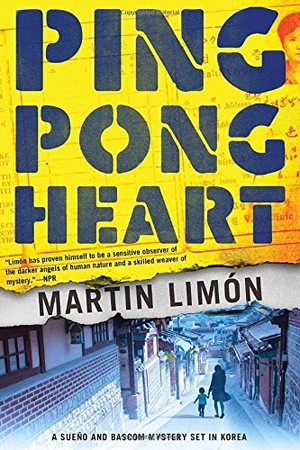
Sergeants Sueno and Bascom are tasked with investigating after a furious Major Schultz claims he’s been ripped off by a local bar girl. He thought he’d negotiated a price for sex, then followed Miss Jo back to her hut and stripped naked at her request. She excused herself to clean up, but stole his money and never returned. Schultz has field officer status, and is also married, so the case is deemed to be sensitive and the sergeants are expected to solve it quickly and quietly.
Because of the strict registration requirements for all women working in the clubs, Miss Jo is not hard to locate. Her story is somewhat different to Schultz’s, though. He wasn’t able to perform, and she says he’s making up the theft to save face. Sueno and Bascom write their report and expect it to be the end of the matter.
Meanwhile, their civilian administration assistant, Miss Kim, with whom Bascom had an affair, reveals that she is being pestered every evening as she leaves the base by another soldier. The next night they follow her and see an American man in civilian clothing whispering to her as they leave the compound. Bascom and Sueno intercept him and take his ID. He is from the 501st Battalion Military Intelligence, or as Bascom puts it, the “Five-oh worst”. They warn him off.
Shortly afterwards Miss Jo is beaten, she claims by Schultz and another soldier. Schultz denies the charge through his lawyer, but before he can properly be interrogated he is found murdered in an alley next to the Dragon King nightclub. The jurisdiction belongs to the Korean police and Sueno and Bascom find themselves working with the notorious Inspector Gil Kwon-up, known as Mr Kill. Their first task is to find the prime suspect, Miss Jo, which proves easy enough. However, while they’re taking her to headquarters they are ambushed and Miss Jo disappears.
Their investigation takes them to the poor rural province where Miss Jo grew up but also into Schultz’s affairs. Schultz was the favourite of the chief of staff, an administrator who was zealous in his task of finding efficiency savings for the sprawling army base, something which made him unpopular with the various departments he was supervising. Many of the different departments were building little empires and jealously defend their budgets. Most recently, Schultz’s attention seems to have been focused on the 501st, whose budget seems to be artificially inflated.
In our reviews of The Ville Rat and The Iron Sickle, we noted how deftly Martin Limon develops the procedural aspects of his stories, and those skills are on display once more. After 11 novels in the series, which began with Jade Lady Burning, he continues to illuminate his Korean setting with obvious affection but without sentimentality. South Korea at that time was essentially a dictatorship, and Limon never glosses over the difficulties faced by the local population. But a long-running series also brings challenges, chiefly how to keep things interesting for the long-term reader. I fall in to that category, having read all the novels as well as his short story collection, Nightmare Range.
Happily Limon is up the challenge. In Ping-Pong Heart, there is a lament for the gradual erosion of traditional Korean life as Western culture creeps in, as well as sensitive character development for Sueno and Bascom who both face personal challenges. Bascom is becoming dissatisfied with his frantic personal life and Sueno faces a heart-breaking decision about his secret Korean family. Limon’s emphasis on character and thematic development perhaps led him to take his eye of the ball of his story telling. What should have been a dramatic climax in the de-militarised zone between North and South, with Sueno and Bascomb confronting Miss Jo’s kidnappers, feels rather rushed and perfunctory.
Nonetheless, Ping Pong Heart is the best book in what has been an extraordinarily consistent crime series and should delight new and long-term readers.
Soho Press
Print/Kindle/iBook
£14.51
CFL Rating: 4 Stars